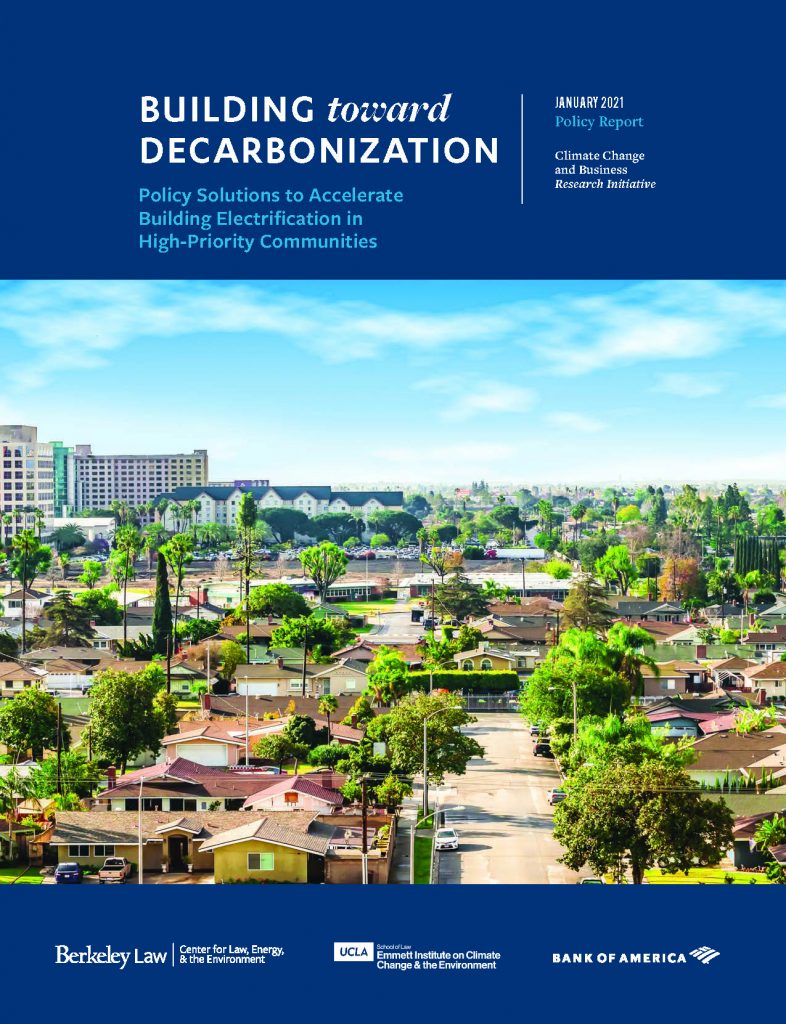All-electric buildings may soon become the norm, bringing benefits for indoor air quality, public safety, and greenhouse gas emissions. The technology has greatly improved to make this transition feasible: electric heat pumps, electric water heaters and induction cooktop appliances are widely available and becoming increasingly affordable.
But as communities phase out natural gas in buildings, who will be left paying for the existing natural gas infrastructure? For those unable to make the transition, costs will go up. As a result, states like California have an urgent need to develop a strategy for building decarbonization, as our January Berkeley/UCLA Law report on this subject described.
In a new op-ed published yesterday by CalMatters, Ted Lamm and I argue for such a strategy:
Policymakers should begin with high-priority communities, targeting incentives and programs for lower-income communities with the least financial resources and the most to gain from improved air quality; areas with new construction and/or aging gas infrastructure already in need of replacement; communities with an expressed willingness to transition; and areas rebuilding from wildfire damage.
This strategy should include a firm timeline for the transition to complete electrification, in order to limit the risk of developing stranded assets in the natural gas distribution network. Otherwise, these assets could increase costs for a shrinking group of customers who can’t afford to make the switch quickly and could undermine the long-term viability of utility investments and system maintenance.
State leaders should also develop a structured plan for a just transition for gas system workers, including funding and retraining support in fields that pay sustainable wages.
And for more discussion on the topic, here is a recording of a webinar that Berkeley / UCLA Law hosted last month with Michael Colvin of Environmental Defense Fund, California Public Utilities Commissioner Cliff Rechtschaffen, and Abigail Solis of Self Help Enterprises.
Some media appearances from me this week on a range of energy, housing and rail topics:
- “Greater LA” on KCRW radio in Los Angeles covered the conspiracy theory that auto companies dismantled the vast Los Angeles streetcar network in favor of freeways, interviewing me for the segment based on my Railtown book.
- CalMatters reported on a new state legislative analysis of California’s renewable energy program, finding significant emission reductions and many research gaps, which helps deflate a Republican proposal to pause the program (with some quotes from me).
- KPCC’s AirTalk radio program featured a live discussion on Wednesday on the proposed “California Green New Deal” legislation, which in part seeks to boost affordable housing and a just transition for workers out of fossil fuels. I was joined on the program by Sylvia Chi from the Asian Pacific Environmental Network and Christopher Thornberg, founding partner of Beacon Economics.
With the legislative session just beginning, I expect the media to continue to focus on the numerous proposals to address our ongoing energy and climate needs. Happy Friday!



